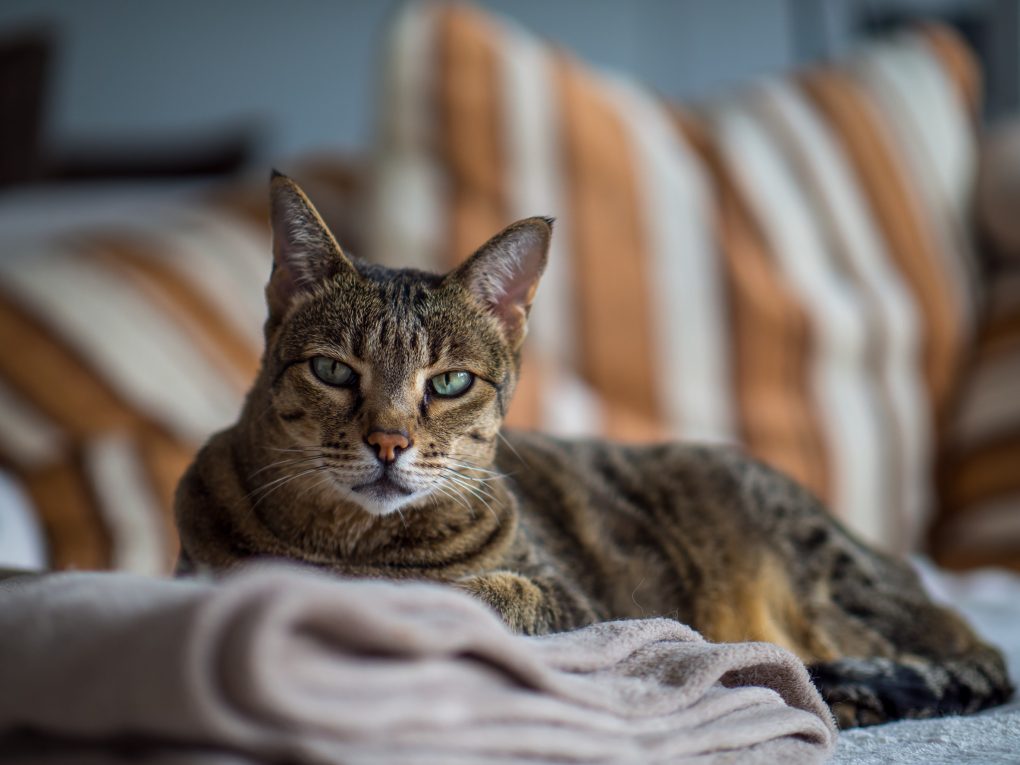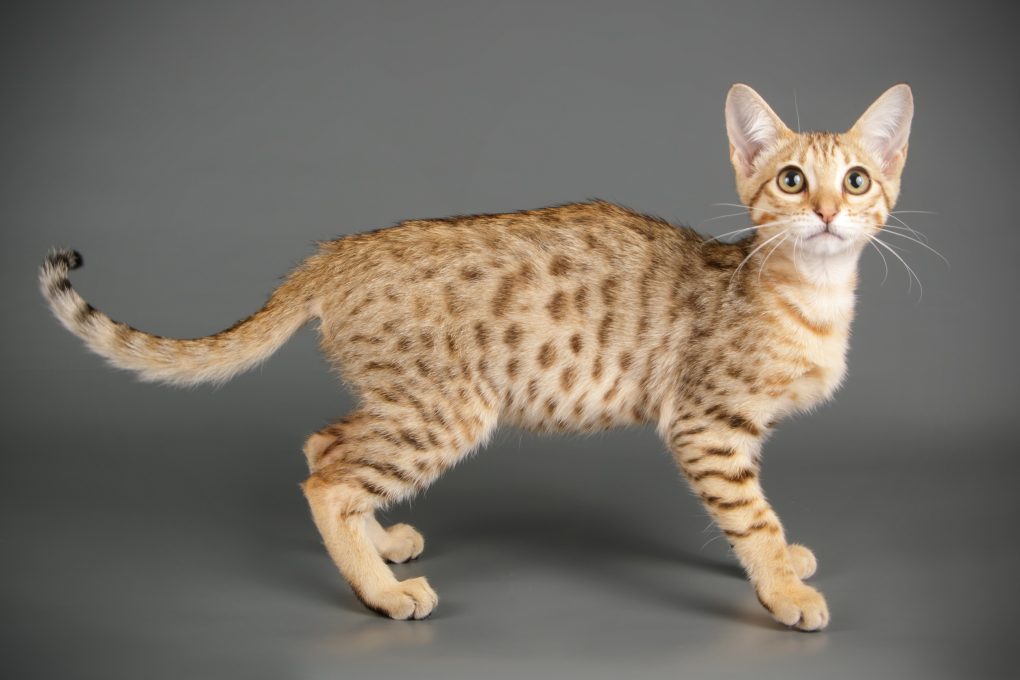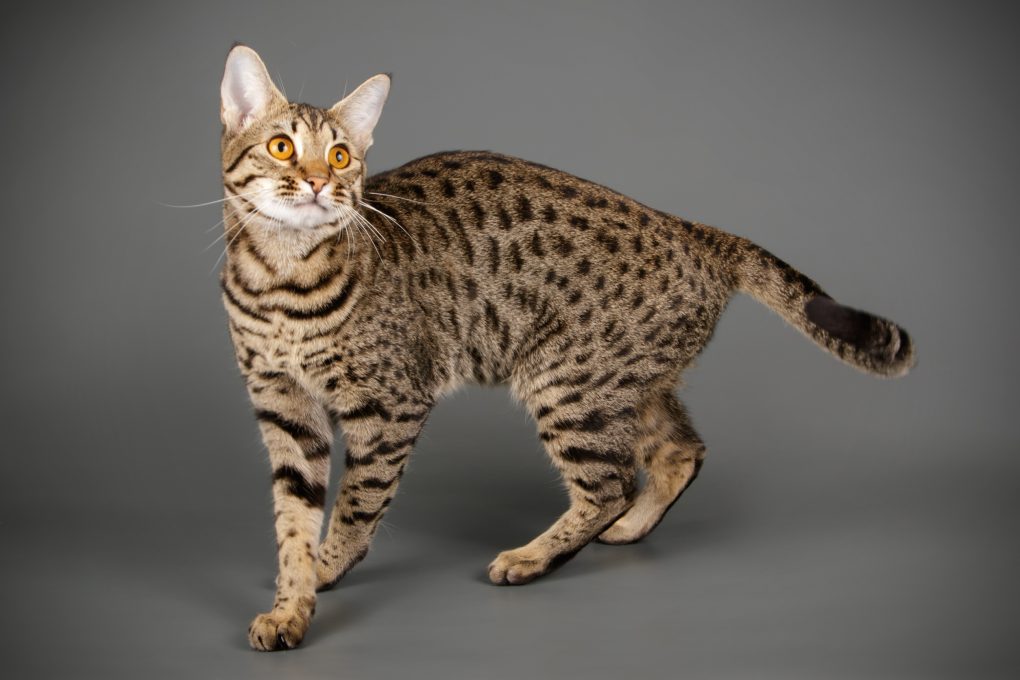Which Savannah Cat Is the Largest: Get to Know the Large Savannah Cats
Typically, the larger the percentage of Serval blood in a Savannah cat, the larger the cat will be. Savannah cats can range from small domestic cats to large, leggy ones resembling their Serval ancestors. The most giant Savannah cats are typically those with a high percentage of Serval blood, often referred to as “F1” Savannah cats, which can weigh up to 30 pounds or more and can be up to 2 feet long.


Table of Contents
Characteristics of the Largest Domestic Savannah Cat
The most giant domestic Savannah cats are those with a high percentage of African Serval blood, often referred to as “F1” Savannah cats. These cats are typically the largest and closest in appearance to their wild ancestors. Some of the characteristic traits of the most giant domestic Savannah cats include:
- Appearance: They have a distinctive appearance, with tall, slender bodies, long legs, large ears, and a short, golden-yellow coat with dark spots.
- Temperament: Savannah cats are known for their playful, intelligent, and affectionate personalities. They are often described as dog-like in their behavior and can be trained to walk on a leash and play fetch, among other activities.
- Energy level: Savannah cats are highly energetic and active, with an instinct to hunt and play. They require plenty of physical and mental stimulation to maintain their health and well-being.
- Socialization: Savannah cats can be social and affectionate with their owners, but they may also be wary of strangers and require gradual socialization and introduction to new people and animals.
Breeding Techniques for the Savannah Cat
Breeding Savannah cats involves carefully selecting and pairing cats to produce offspring with desirable traits. Here are some tips for breeding Savannah cats:
- Choose high-quality cats: Choose cats with strong, healthy genetics and good temperaments. Consider the cat’s appearance, size, and personality, as well as its ancestry and health history.
- Genetic diversity: Maintain genetic diversity in the breeding program by breeding cats from different bloodlines. This can help reduce the risk of genetic disorders and ensure the health of future generations.
- Health testing: Test the breeding cats for health conditions or genetic disorders that may be passed on to their offspring.
- Careful pairing: Pair cats carefully to produce offspring with desirable traits, taking into account their size, appearance, and temperament.
- Temperament evaluation: Evaluate the temperament of both the parents and offspring to ensure they have good dispositions and are suitable for domestication.
- Cattery management: Maintain a clean and healthy environment for the cats and kittens. Provide proper nutrition, veterinary care, and socialization to ensure their well-being.
Health Considerations for Owning a Large Savannah Cat
Owning a large Savannah cat, particularly those with a high percentage of African Serval blood, requires careful consideration of their unique health needs. Some of the health considerations for owning a large Savannah cat include the following:


- Diet: Savannah cats require a balanced diet with sufficient protein, fat, and nutrients to support their high energy levels and growth. Feeding them high-quality cat food that meets their dietary needs is essential.
- Exercise: Savannah cats are highly active and require plenty of physical and mental stimulation to maintain their health and well-being. They may benefit from climbing, playing, and hunting games.
- Veterinary care: Regular veterinary check-ups are essential to monitor their health and address potential issues. Savannah cats may be prone to certain health conditions such as heart disease, hip dysplasia, and dental problems. Early detection and treatment can help prevent these conditions from becoming more serious.
- Spaying and neutering: Spaying and neutering can help reduce the risk of certain health conditions and improve their overall health and well-being, according to the Humane Society.
- Vaccinations: Regular vaccinations protect Savannah cats from infectious diseases and help maintain their overall health.
- Heartworm and parasite prevention: Regular heartworm and parasite prevention are essential to protect Savannah cats from these common and potentially severe health problems.
Advantages of Owning a Large Savannah Cat
Owning a large Savannah cat, particularly those with a high percentage of African Serval blood, can offer many advantages and benefits. Some of the advantages of owning a large Savannah cat include the following:
- Playful and energetic: Savannah cats are highly playful and energetic, making them ideal companions for those who enjoy interactive play and physical activity.
- Intelligent: Savannah cats are brilliant and can be trained to perform a variety of tricks and activities, making them fun and engaging pets.
- Affectionate: Many Savannah cats are known for their affectionate and social personalities and may form strong bonds with their owners.
- Unique appearance: Savannah cats are known for their distinctive appearance, with their tall, slender bodies, long legs, and large ears, making them a visually striking breed.
- Low grooming needs: Savannah cats have short, smooth coats that require minimal grooming, making them a low-maintenance breed.
- Adaptable: Savannah cats can live in various environments, including homes, apartments, and more significant properties.
Disadvantages of Owning a Large Savannah Cat


- Cost: Savannah cats can be expensive, particularly those with a high percentage of Serval blood, and the cost of purchasing, feeding, and caring for them can be substantial.
- Size: Savannah cats can be significant and more challenging to handle than smaller breeds, especially for those not physically strong or experienced in handling giant cats.
- Energy level: Savannah cats are highly energetic and active and may require more physical and mental stimulation than other breeds. This can be challenging for those who need more time or resources to meet their needs.
- Destructiveness: Savannah cats have the instinct to hunt and play, and they may exhibit destructive behavior if they do not receive adequate physical and mental stimulation.
- Training and socialization: Savannah cats can be challenging to train and socialize, especially for those not experienced in working with large or exotic breeds.
- Legal restrictions: In some areas, local laws and regulations may restrict owning a large Savannah cat. Researching and complying with applicable laws before acquiring a Savannah cat is essential.
